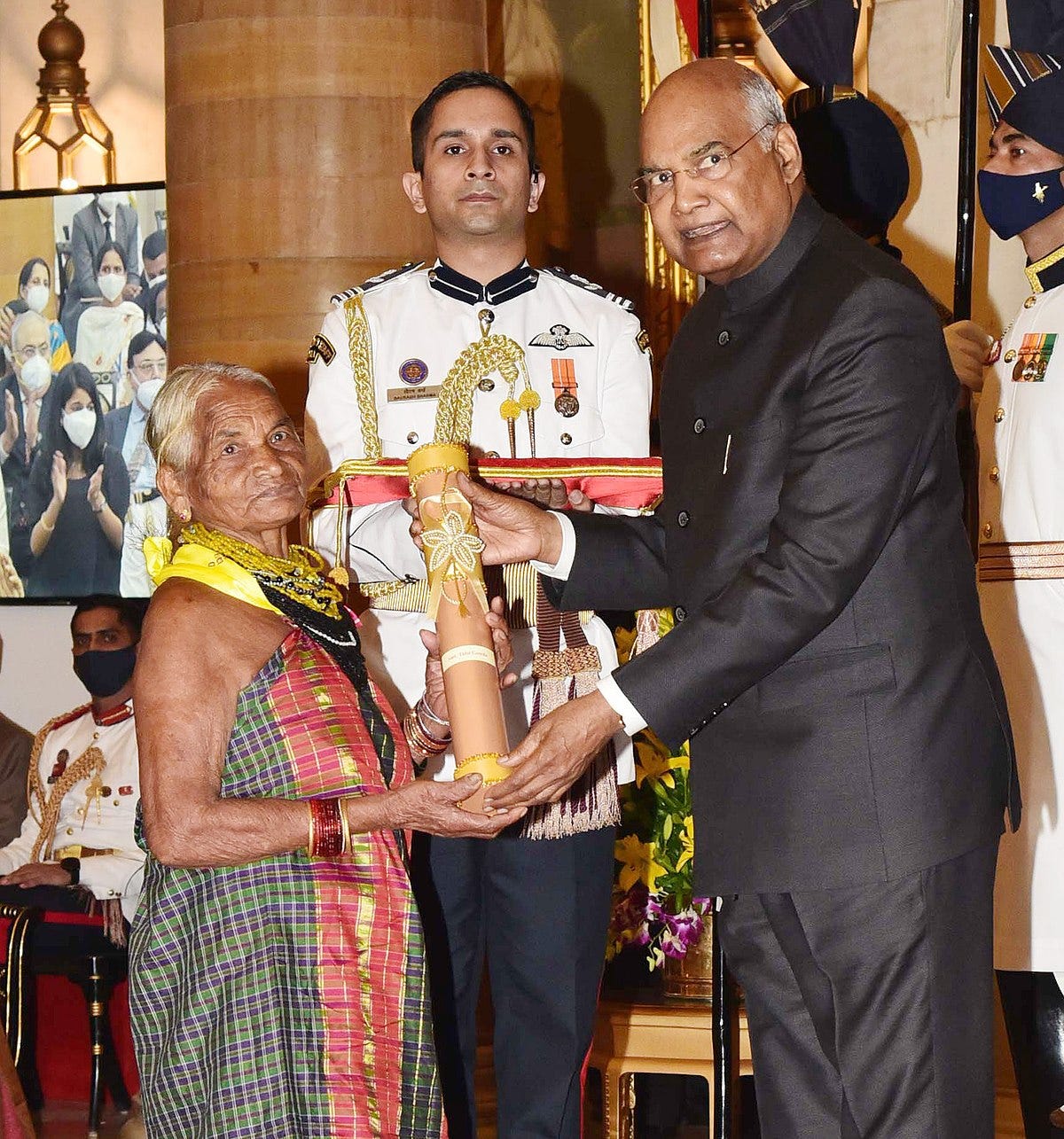Tulsi Gowda, a 72-year-old tribal woman from Karnataka, was conferred the prestigious Padma Shri award earlier this week. Barefoot and dressed in her traditional attire in the ceremony, let’s know more about this humble environmentalist’s contributions.
Crux of the Matter
Who Is Tulsi?
She is an Indian environmentalist belonging to the Halakki indigenous tribe in Karnataka. Her tribe has a deeply rooted heritage where the matriarchy is in charge of caring for the land.
Tulsi has reportedly planted 1 lakh trees on her own (starting since the age of 12), and has been involved in multiple environmental conservation activities.
Life At The Nursery
As a kid, she worked with her mother as a day laborer at a local nursery. Tulsi was mainly responsible for taking care of the seeds that were to be grown and harvested at the Karnataka Forestry Department.
Tulsi worked at the nursery for more than 50 years, retiring at the age of 70.She has dedicated the rest of her life to teaching the children of her village about the importance of the forest.
Why Is She Called A Tree Goddess?
She uses her traditional knowledge of the land (gained through first-hand experience), to help with afforestation efforts in Karnataka, a state known for popular ecotourism locations.
Mother Of Mother Trees
She is renowned for her ability to identify the mother tree of any species of tree in the forest no matter its location. Mother trees are the most connected nodes in forest, as they exchange nitrogen and nutrients with saplings and seedlings.
Master Of Seed Collection
Seed collecting is the extraction of seeds from mother trees in order to regenerate entire plant species. This is a difficult process as the seeds must be collected at the peak of germination to ensure the survival of the seedlings. Tulsi is able to keep track of this exact time.
Recognition Of Her Efforts
Indira Priyadarshini Vrikshamitra Award (1986).
Karnataka Rajyotsava Award (1999).
Padma Shri Award (2020).
Tulsi is thankful for winning these awards, but still “values the forests and trees more”.
Curiopedia
Started in 1973 in Uttarakhand, Chipko movement was a forest conservation movement in India. The word ‘chipko’ means “to cling to” and referred to the rural villagers, mostly women hugging trees as a mark to protect them from loggers.




